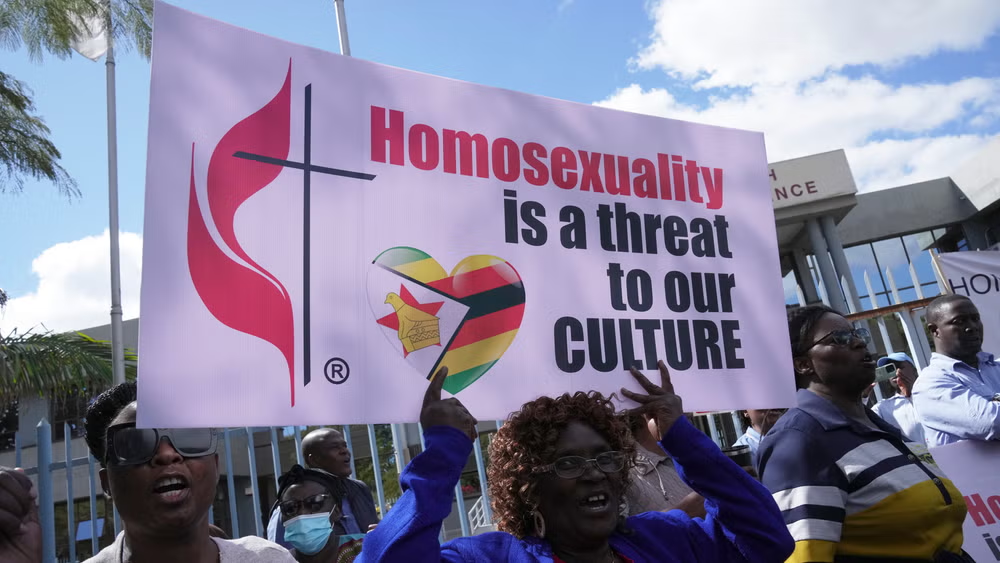Leaders of the United Methodist Church expressed regret over last week’s decision by the branch in Côte d’Ivoire to leave the union following the church’s decision to repeal a long-standing ban on LGBTQ+ clergy but pledged to accept it.
The developments were the latest in a series of ripple effects in conservative Africa, which is home to the vast majority of United Methodists outside the United States, amid disputes on sexuality and theology that have shaken the Methodist churches.
In early May, delegates at the church’s first legislative gathering in five years voted overwhelmingly to remove a rule forbidding “self-avowed practicing homosexuals” from being ordained or appointed as ministers.
It was a sharp contrast to past General Conferences of the United Methodist Church, which had steadily reinforced the ban and related penalties amid debate and protests. The change doesn’t mandate or even explicitly affirm LGBTQ+ clergy, but it means the church no longer forbids them.
But each member church was free to decide for itself — and while some bishops favored staying on, others pushed to disaffiliate.
On May 28, Côte d’Ivoire church voted to split from the United Methodists. With over 1.2 million members, the West African country’s church has one of the denomination’s largest overseas followers. The United Methodist Church has about 5.4 million members in the United States, and about 4.6 million in Africa, Europe and the Philippines, according to church figures.
In its first reaction following last week’s vote, the church’s Council of Bishops said on Wednesday that “while we grieve” the Côte d’Ivoire’s decision, “we commit to work with them through the process of becoming an Autonomous Methodist Church.”
“While we are not all of one mind in all things, the strength of our connection is love, respect, compassion and a shared commitment to faith in Jesus Christ,” the council said in a statement.
Elsewhere in Africa, hundreds of United Methodist Church members gathered at the church’s local headquarters in Zimbabwe’s capital, Harare, last Thursday to protests the church’s move to welcome LGBTQ+ members.
They sang religious songs, held placards with messages saying homosexuality is a sin and an abomination.
“Africa is not for sale. No to homosexuality,” read one placard held by an elderly woman. Church member James Kawaza reminded the gathering that “homosexuality is unlawful in Zimbabwe.”
“The church has aligned with the Rainbow Movement, and this is also a threat to our African traditions and human existence at large,” read a petition by church members, calling on their Bishop Eben Nhiwatiwa to act.
Nhiwatiwa was not available for comment.
Zimbabwe’s Christian denominations — and others in Africa — have been vocal against any moves to welcome gays into the church.
In January, Catholic bishops in Africa and Madagascar issued a unified statement refusing to follow a declaration by Pope Francis allowing priests to offer blessings to same-sex couples, asserting that such unions are “contrary to the will of God.”
Chester Samba, Director of GALZ, which represents the LGBTQ+ community in Zimbabwe, said he was not so hopeful for Zimbabwe and much of the continent to change their conservative stand.
“It is my hope that platforms for dialogue are created and supported to enhance understanding so that all may be welcome in the house of worship regardless of sexual orientation,” said Samba, whose members have over the years been targets of harassment and stigmatization.
